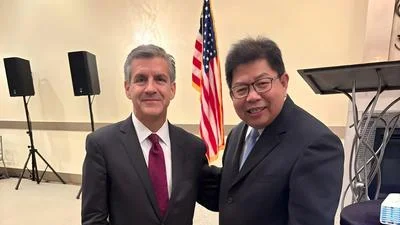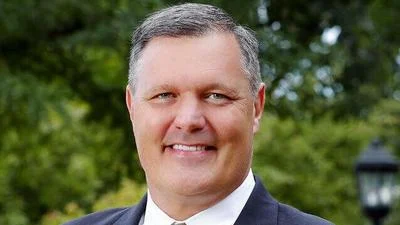Fermilab's cavity tuner for Booster particle accelerator | http://vms.fnal.gov/asset/detail?recid=1937969
Fermilab's cavity tuner for Booster particle accelerator | http://vms.fnal.gov/asset/detail?recid=1937969
Dec. 10, 1931 — Cedarville. Social reformer and Cedarville native Jane Addams became the first woman to win a Nobel Peace Prize. According to an article on the National Women's History Museum website, Addams translated the "liberal Christian values and a deep sense of social mission" acquired during childhood to become one of the country's foremost advocates for the poor. Her major accomplishment was co-founding Hull House in Chicago, where "educated women (shared) all kinds of knowledge, from basic skills to arts and literature with poorer people in the neighborhood." The Peace Prize recognized not only her work with the poor, but also her peace activism after WWI.
Dec. 11, 2003 — Springfield. Illinois names Kevin Stein its newest poet laureate. Stein, a professor at Bradley University, launched several successful literacy programs, as his online biography states. His Emerging Writers poetry competition fostered creativity among schoolchildren, and Poetry Now! funded the purchase of books written by state residents. Critics have hailed Stein’s eight books of poetry and other written works, his bio says.
Dec. 12, 1860 — Chicago. Harriet Monroe, a pioneering literary figure, was born. Monroe’s works spanned poetry, editing and scholarship, according to The Modernist Journals Project. As the founder of Poetry magazine, Monroe sought to find a venue where poets could get their work published. She also fought to maintain copyright protection for artists’ works, winning a 19th-century court case against a publisher who printed her work without permission.
Dec. 13, 1897 — Evanston. Journalist and columnist Drew Pearson was born. Before entering newspaper work, Pearson helped rebuild areas in Europe damaged during World War I, as an article states on Spartacus Educational Publishers’ website. His work included stints with the Baltimore Sun and United Features Syndicate. One column defending John Gates, a Communist, inadvertently disclosed military intelligence and required the D-Day invasion to be rescheduled. Another story uncovered government fraud by the chairman of the House Un-American Activities Committee.
Dec. 14, 1914 — Chicago. Classical pianist and J.S. Bach expert Rosalyn Tureck was born. As her New York Times obituary stated, Tureck invested more than a half century in “performing, researching, teaching and writing” about 18th-century composer Johann Sebastian Bach. Her work challenged the assumption that Bach’s works were simply drills for classical performers; she focused her early career on serious performances and study of his music.
Dec. 15, 1970 — Illinois. Illinois voters approved a new State Constitution while rejecting the appointment of judges, abolishing the death penalty and lowering of the voting age to 18. Illinois voters had approved official constitutions in 1818, 1848 and 1870, but revisions in 1862 and 1922 failed. The current constitution received voter approval on this date in 1970.
Dec. 16, 1967 - Batavia. Fermilab, the world’s most powerful atom smasher, was announced. “We do science that matters,” says the nuclear facility’s website, going on to describe inquiry comprising everything from the origins of the universe to dark matter/dark energy. Originally known as the National Accelerator Laboratory when the U.S. Atomic Energy Commission chose DuPage County as the site, its name was changed in 1974 to recognize physicist Enrico Fermi.






 Alerts Sign-up
Alerts Sign-up